The trend in animal welfare now sweeping the nation is being called the “progressive approach.” What that boils down to is something that closely mirrors the efforts our PRCKC outreach team has been practicing: being non-judgmental and using education and resources to address issues related to shortcomings in animal care and to prevent animals from being relinquished because owners feel as if they have no other choice.
While we applaud this approach and the incredible work Kansas City Pet Project is doing – both as a shelter and with their burgeoning efforts as our city’s animal control arm – we believe there are issues with the more progressive approach. Especially when it comes to neglect or cruelty.
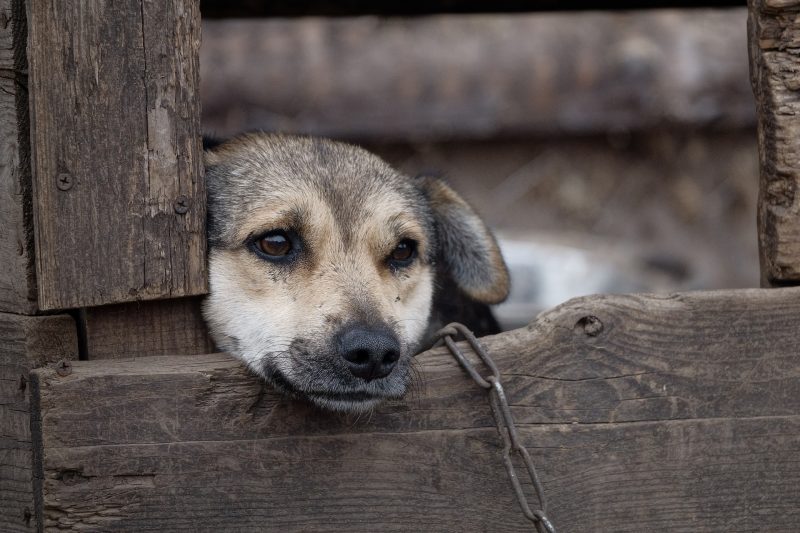
“We have to keep our voice out there advocating for animals, which is why we’re speaking up,” explained Kristin Roth, director of community engagement at PRCKC. “We’ve been in some of the most economically disadvantaged communities in KC for 20 years and we can’t stop being a voice for the voiceless now.
“We feel pretty confident that we understand the issues because we’ve been seeing them daily for so long.”
Kristin Roth, PRCKC
“We feel pretty confident that we understand the issues because we’ve been seeing them daily for so long,” she continued. “We see so many positive cases in our community; situations where pet owners are doing the best they can with what they have. But, then, we do see the darker side where there is neglect and cruelty, which we have zero tolerance for. In those situations, simply distributing resources would be negligent since an animal would be left in an unsafe environment.”
The progressive approach does seem to work elsewhere; however, as Roth admits. Those cities, she says, are typically much smaller and don’t have the same socioeconomic gaps that plague Kansas City. The problem is just too big here, she adds.
“We agree that it’s an admirable goal. Keeping pets out of the shelter is what we’re all about. But not at the expense of animals who are neglected or abused. In those cases,” Roth says, “action needs to be taken immediately. The wait and see approach doesn’t do any good when an animal is being harmed.”
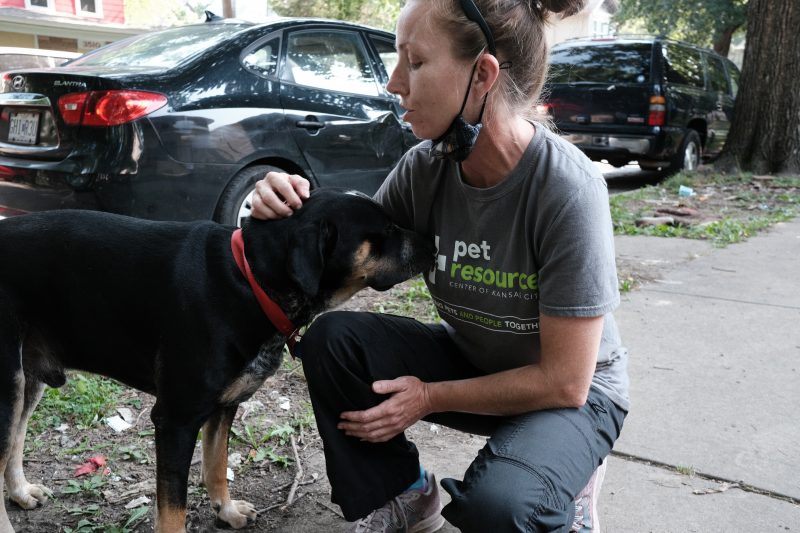
Bite Data Reflects Growing Issues
One unintended consequence of the transition in animal control – or COVID – is the bite data for KCMO. Although both the National Center for Biotechnology information and PetPedia reported an increase in dog bites and related emergency room visits during the pandemic, cases in KCMO remained mostly consistent – between 4-500 each year from 2014 through 2019. During the transitional period for animal control, they jumped to 647 and then, in 2021 to September 8, 817 have been recorded. As a comparison, Independence, Missouri, remained mostly consistent but had a dramatic drop in 2020 and that trend is continuing in 2021. Similarly, Kansas City, Kansas, saw an increase during the pandemic but is seeing a drop in bite cases in 2021, a trend that began in late 2019. Lee’s Summit, like Kansas City, Kansas, began a rise in 2018 that peaked in 2019 and has been falling since.
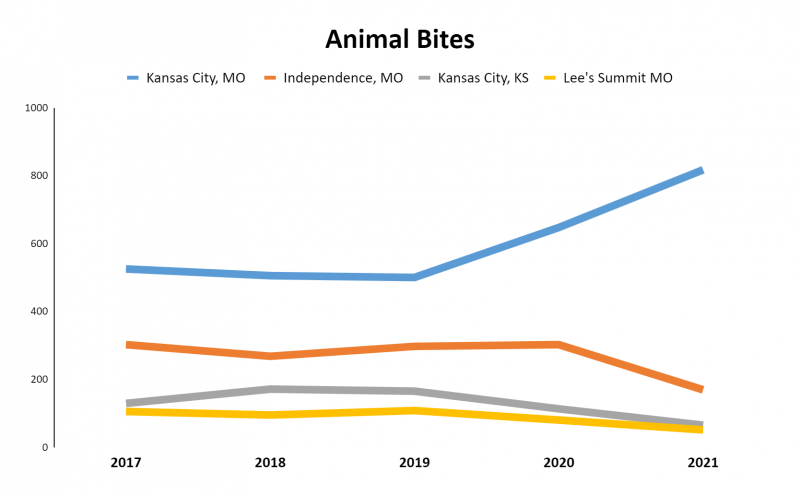
“It makes sense that bites went up during the pandemic,” says Michelle Dormady, founder and CEO of PRCKC. “There was a lot more human-animal interaction and also, stress levels were definitely increased. Still, if you see two cities with pretty sizable populations that also face substantial economic issues, and to see a downward trend to date, then you know that something different needs to be done in KCMO.”
“Our concern now is that the hard won successes that have been achieved by animal welfare groups will be undone by this different approach.”
Kristin Roth, PRCKC
All in all, we believe not writing citations for lower level offenses is the perfect approach. And we applaud KCPP for going in that direction and focusing on helping educate owners, providing resources, and giving them time to fix issues. At the same time, we believe there should be zero tolerance for cruelty. Urging better behavior from an owner who has willfully neglected or injured an animal and then waiting for an improvement will not result in improvements; only prolonged suffering for an animal who doesn’t deserve it. In that case, immediate and urgent action is required. If that means the city needs to change statutes to allow animal control officers to act in the moment based on their best judgment, then that’s exactly what needs to happen.
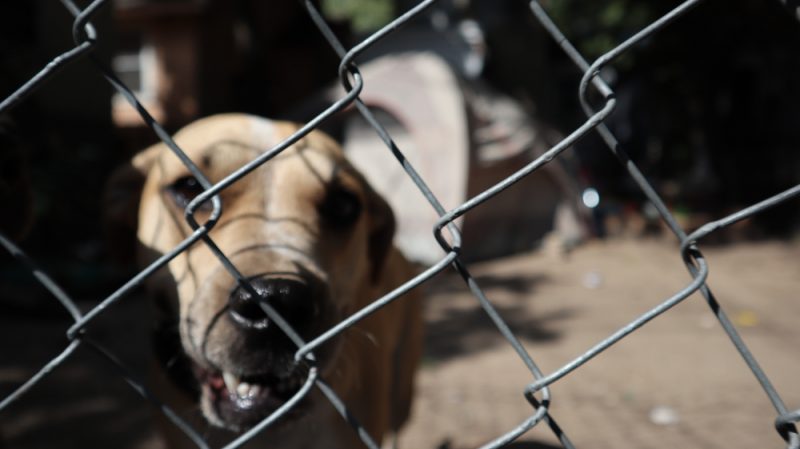
In addition, more attention should be given to nuisance calls or other related issues that, left unattended, can ultimately turn into instances of cruelty. Roaming pets, for example, can quickly add to the pet population, which in turn can result in more homeless pets and more violence directed toward them, especially for cats who are at risk of being killed by annoyed citizens who take matters into their own hands.
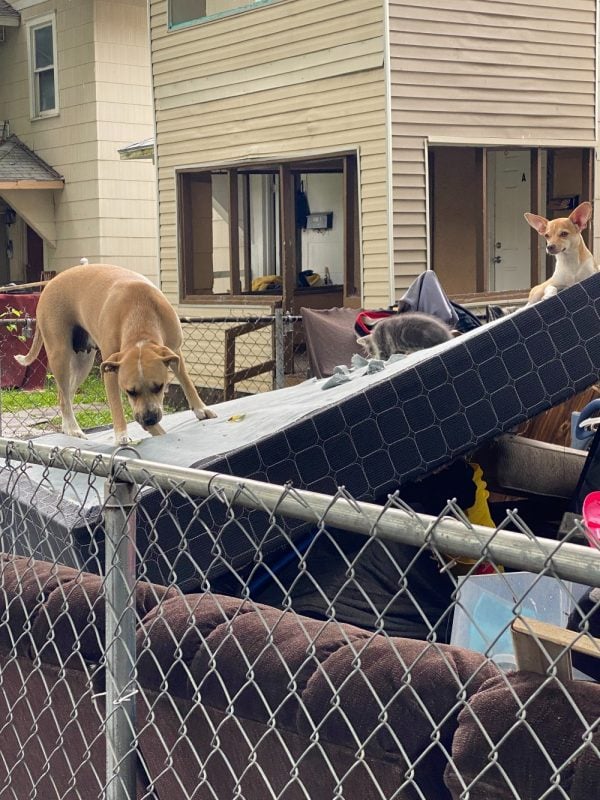
“Our concern now,” concludes Roth, “is that the hard won success that have been achieved by animal welfare groups in the metro will be undone by this different approach. That doesn’t mean citations for small offenses, which often punish the most economically disadvantaged people. What it does mean is that our animal control officers must be empowered by the city to stop cruelty and neglect the moment they see it. Otherwise there’s just one more animal left to suffer needlessly. And I think we can all agree that we don’t want to see animals in peril.”
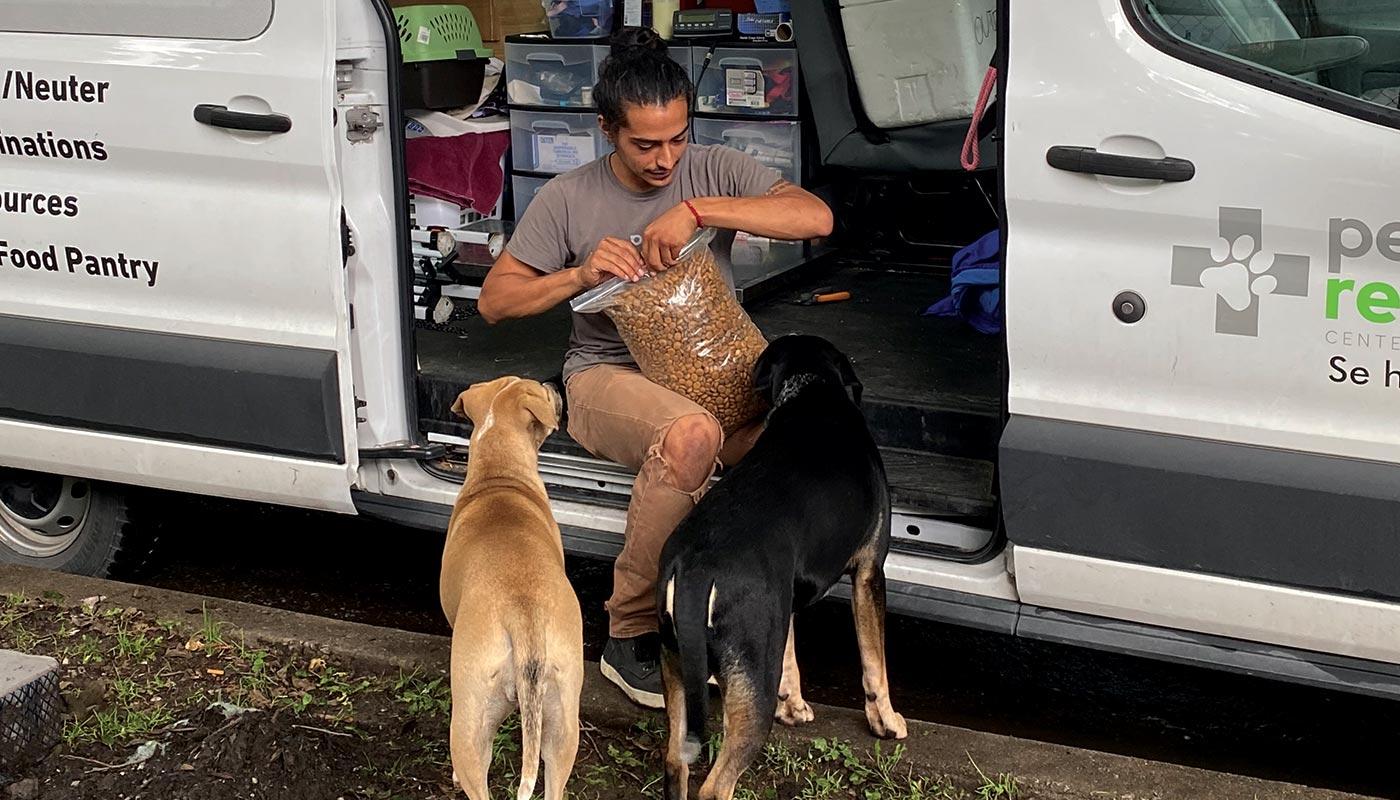
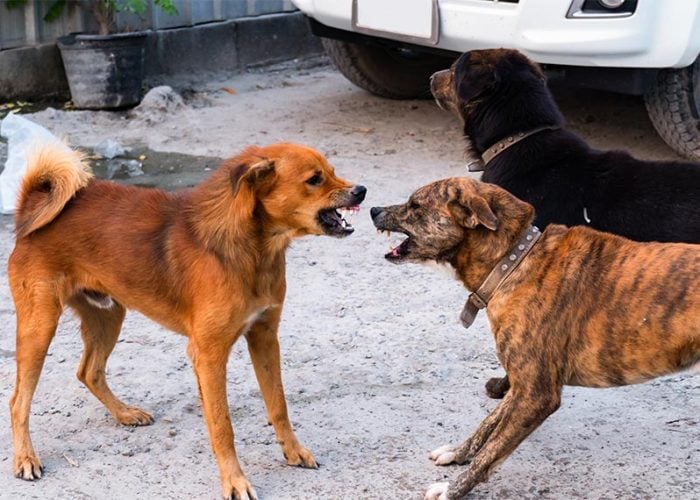
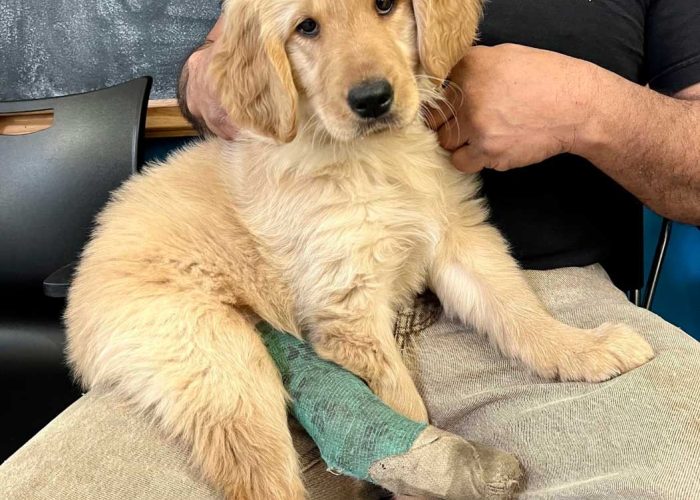
Animal cruelty and neglect should be dealt with immediately,,, harshly,,, I don’t personally care about the perpetrators circumstances.